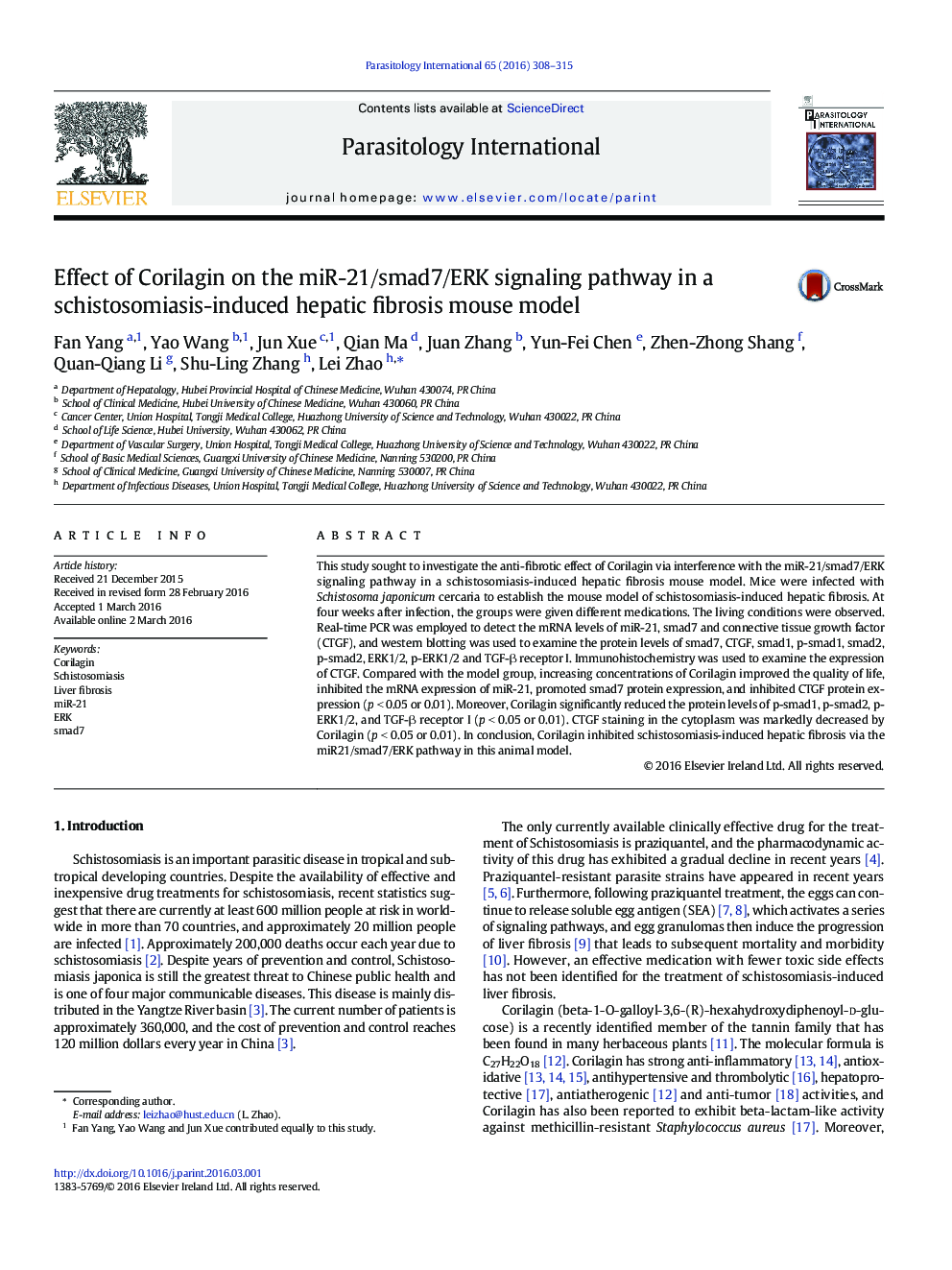| Article ID | Journal | Published Year | Pages | File Type |
|---|---|---|---|---|
| 3417735 | Parasitology International | 2016 | 8 Pages |
•Corilagin could inhibit schistosomiasis-induced hepatic fibrosis through miR21/smad7/ERK.•Corilagin is a new natural product to interfere with the miR21/smad7/ERK signal pathway.•Corilagin could interfere with the miR21/smad7/ERK signal pathway in animal model.
This study sought to investigate the anti-fibrotic effect of Corilagin via interference with the miR-21/smad7/ERK signaling pathway in a schistosomiasis-induced hepatic fibrosis mouse model. Mice were infected with Schistosoma japonicum cercaria to establish the mouse model of schistosomiasis-induced hepatic fibrosis. At four weeks after infection, the groups were given different medications. The living conditions were observed. Real-time PCR was employed to detect the mRNA levels of miR-21, smad7 and connective tissue growth factor (CTGF), and western blotting was used to examine the protein levels of smad7, CTGF, smad1, p-smad1, smad2, p-smad2, ERK1/2, p-ERK1/2 and TGF-β receptor I. Immunohistochemistry was used to examine the expression of CTGF. Compared with the model group, increasing concentrations of Corilagin improved the quality of life, inhibited the mRNA expression of miR-21, promoted smad7 protein expression, and inhibited CTGF protein expression (p < 0.05 or 0.01). Moreover, Corilagin significantly reduced the protein levels of p-smad1, p-smad2, p-ERK1/2, and TGF-β receptor I (p < 0.05 or 0.01). CTGF staining in the cytoplasm was markedly decreased by Corilagin (p < 0.05 or 0.01). In conclusion, Corilagin inhibited schistosomiasis-induced hepatic fibrosis via the miR21/smad7/ERK pathway in this animal model.
Graphical abstractFigure optionsDownload full-size imageDownload as PowerPoint slide
